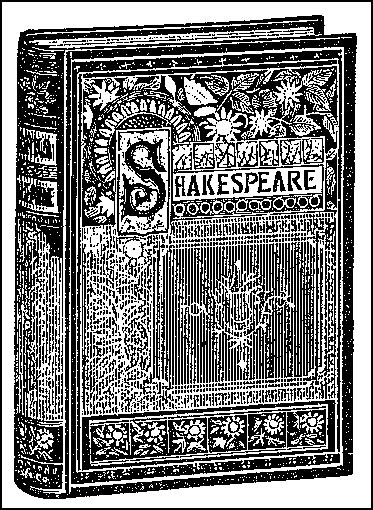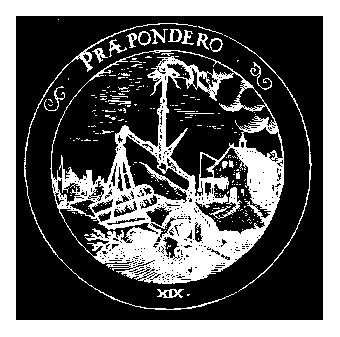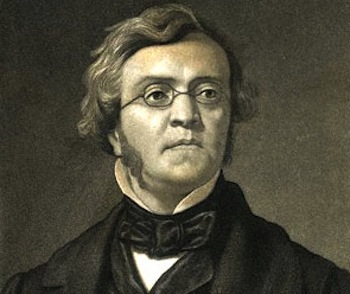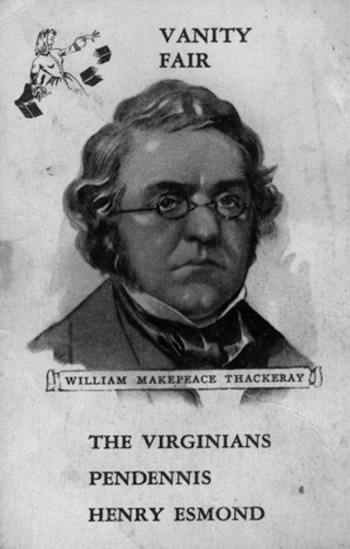Frank Kermode
(Farrar Straus)

He is expected not only to understand Middle English, but to be able to read it. He has to wade through the Romantics, the pre-Raphaelites, the Edwardians, the pre-moderns, post-moderns, middle-moderns, anti-moderns, and the quasi-moderns. He will be required to answer questions by tired, tenured professors on such fascinating writers as William Congreave, John Mabbe, and Robert Surtees. He will be expected to differentiate between a sonnet, a trimeter, a tribrach, a rondel (and even a rondeau).
Most of all, he will be expected to be fully familiar with the twenty-three --- or is it twenty-eight? or perhaps thirty-six? --- plays of Shakespeare.
Shakespeare. Saints preserve us! For Shakespeare is best for punishing students; he's the wheel on which many a poor graduate student will be broken --- this word-monger from four centuries past, writing in a language that can scarcely be comprehended, in a style that is occlusive at best, on a variety of unpleasant scoundrels (Lady Macbeth. Iago. Richard III.) And all the while our wretched student will be forced to add to the garbage pile of M.A. or Ph.D. theses, to be ignored by all as soon as completed.
Indeed, after plowing through and writing yet another paper on Romeo and Juliet, or Henry IV, Part 1, or the mumblings of the dark Prince of Denmark, for the seventh time --- he will begin to wonder if it would not be wiser to study mechanical engineering, fixed partial dentures, Serbo-Croation geology, black holes --- anything to get away from the dread Bard of Stratford.
There are a few --- a very few --- characters that one could want to know: Mercutio, the Fool, even the drunken porter. And most certainly, lovely Cleopatra, telling us about,
My salad days,
When I was green in judgment, cold in blood...
Or telling the maids, if they see Anthony,
If you find him sad,
Say I am dancing; if in mirth, report
That I am sudden sick...
Or, as she is about to commit herself to the gods, asp against her bosom,
Peace! Peace!
Dost thou not see my baby at my breast,
That sucks the nurse asleep?
Outside of the likes of her, as far as we anti-Bards are concerned, you can take the entire First Folio and dump it in the Thames --- and thus spare future students the wheezing papers they are required to do on "Courtly Lovers in Shakespeare," or, "Justice in Measure for Measure," or "Concepts of Ageing in The Tempest."
There is perhaps one other redeeming aspect to the study of Shakespeare. It flows from those literate (and often poetic) scholars who write on some aspect of the plays and, in the process, create a work of art: the art of high criticism. Those who come readily to mind are A. C. Bradley on Shakespeare's tragedies, William Empson on ambiguity, and Harry Levin's wonderful Question of Hamlet.
They are joined now by the wise and learned Frank Kermode --- treating Shakespeare's poetry in a very poetic fashion. Rather than spend an evening at the Old Globe wrestling with the obscure pyrotechnics of King Lear, we'd suggest a quiet evening in the sack with a bottle of sack, paging through Kermode's fascinating volume, seeing the master through the eyes of another master.
For example, let's look at a short passage in Measure for Measure in which Claudio, "under sentence of death for fornication, agrees that his sister, the novice Isabella, might, with some hope of success, go to the deputy Angelo and plead for her brother's life,"
for in her youth,
There is a prone and speechlesse dialect
Such as moue men...
Kermode then goes on to comment on the word "prone:"
A modern reader may...agree that this passage, far from suffering a loss of sense from that "distortion of words" which " is not uncommon in our author," comes from the secret places of the Muse where distortions make poetry; that it is a wonderful piece of language, one of those that provoke the sort of attention T. S. Eliot had in mind when he spoke of the bewildering minute, the moment of dazzled recognition, from which one draws back and, having regained composure, tries to think of something to say about an experience too disconcerting to be thought of as simply pleasant.
For, he goes on, it would not be untoward for those reading this passage to begin to have an inkling that Claudio, on death row, thinks that his sister, the virginal nun, should be "moving men" --- moving them, that is, for pleasure. Indeed, "this last half-line," says Kermode,
makes its point very calmly, with an air of knowing about such cases; and, indeed, I feel very indelicate in explaining Claudio's meaning.
we know not where
To lie in cold obstruction, and to rot;
This sensible warm motion to become
A kneaded clod; and the delighted spirit
To bathe in fiery floods, or to reside
In thrilling region of thick-ribbed ice;
To be imprisoned in the viewless winds
And blown with restless violence round about
The pendant world; or to be worse than worst
Of those that lawless and incertain thought
Imagine howling --- 'tis too horrible!
The weariest and most loathed worldly life
That age, ache, penury, and imprisonment
Can lay on nature is a paradise
To what we fear of death.
Act III, Scene 1
"Delighted" strikes one as the oddest of these words, since the context makes it plain that the spirit is not, in any modern sense of the word, delighted. Can it be a nonce word, de-lighted, deprived of light? Hammer emended it to "dilated"; Johnson, rather weakly if one may say so, to "delinquent."
Finally, "viewless" is "invisible;" its force comes partly from the chime with "restless" in the next line. Editors add that to be blown around the earth in this way was considered the punishment of people who were too fond of the pleasures of the body, so the guilty Claudio might think himself qualified for that fate, like Paolo and Francesca in Dante. "Pendant" adds to the horror of the idea, the earth suspended in space as the sinners whirl around it.
What is meant by "lawless and incertain thought?" One editor says the passage "is not susceptible of satisfactory explanation," and this may be true; thoughts of hell were "incertain" perhaps, but not "lawless." The effect is still to make the familiar general sentiment a little strange, to stop the reader a moment.
©Frank Kermode
Farrar, Straus and Giroux (2000)
Oliver St. J. Gogarty

"No, nor the books one wants."
"Why should one be? I thought the fellow most amusing: saving engineers by Kipling; budding bankers by bad verse; suspended priests by heresies. He calls it snatching brands from the burning. I heard you whisper that it would be better to snatch the bank clerks from Browning."
"I did not quite say that. Why are you so hard on Browning?"
"Because he didn't keep on banking. He introduced jazz, into English verse, on account of his mixed blood no doubt. There is black blood in him somewhere, that is why he was called Browning --- it comes out in the tom-tom of his verse.
Beautiful Evelyn Hope is dead,
Rumptity, rum pity; don't look dour!
This was her table, that was her bed;
And here her last leaf of geranium flower."
"I rather like it. The economy with which he makes a scene is amazing."
"But, then, the cross-word puzzles of his poems. He anticipated cross-words. He kept so many people guessing that he got a reputation for depth and for poetry out of all proportion to the beauty he evoked in words. Instead of "fundamental brainwork," there is only something foundered beneath the surface. What porridge!
"The nearest he got to poetry was 'A chorus-ending of Euripides' --- and Mrs Browning. He depends for half his effect on our associations of ideas with the Greek; for the rest on his wife. His inspiration is rarely original. It is literature begotten on literature, Caliban upon Mrs Browning. Where is his equivalent to what is created out of nothing:
Come unto these yellow sands
"His muse is as much invalid as his wife was invalide. I much prefer Longfellow, who does not turn your mind into a war dance, but he leaves it cool and smooth.
As he leaned upon the railing,
And his ships came sailing, sailing,
Northward into Drontheim fjord.
"And smoothness is one of the three indispensables of poetry. Yes. Browning is only suited for reading in banks. There is a Browning Society in England whose members assure each other that they understand him. When I read his translation of Æschylus, I find it very useful to have the Greek beside me so that I may find out what the English means. He does not write poetry, but his prose pulsates.
"Then those medical students for whom he has prescribed a course of medieval quackery! And his priest studying heresy! What an amusing fellow!"
I never listened to more suave and childlike irreverence in my life."
"I saw nothing irreverent in it."
"You would not be likely to, being irreverent yourself."
Going Down Sackville Street
©1937 Penguin Books
I received your foolish and impudent letter. Any violence offered me I shall do my best to repel and what I cannot do for myself, the law shall do for me. I hope I shall not be deterred from detecting what I think a cheat by the menaces of a ruffian.
What would you have me retract? I thought your book an imposture; I think it an imposture still. For this opinion I have given my reasons to the public, which I here dare you to refute. Your rage I defy. Your abilities, since your Homer, are not so formidable: and what I hear of your morals inclines me to pay regard, not to what you shall say, but to what you shall prove. You may print this if you will.
Jean Racine
Translated by
Ted Hughes
(Farrar Straus Giroux)

Hippolytus, in turn, is in love with Aricia, granddaughter of Thesus' one-time enemy, Erechtheus. The way that Phèdre deals with her unrequited love is the same way that many of us would: by turning sullen, mean, testy and petty. Phèdre's nurse and retainer, one Oenone, tells her to stop mooning around so much; that if she loves Hippolytus so much, just give him the word. So Phèdre relents, sends for the kid, and tells him that since his step-father doesn't seem to be on the horizon, she has decided to give him all her love.
Hippolytus is less than enchanted with step-mom's advances, since he is nuts for the innocent Aricia, so he mouths a few platitudes and gets the hell out of there. Meanwhile, lo and behold, King Theseus is resuscitated, sails into port, and is all ready to take his wife and his kingdom back into his arms. Unfortunately, with Oenone's connivance, he suspects that there's dirty foot awork, mistakenly coming to the conclusion that Hippolytus has been trying to put the make on Phèdre. The shit hits the fan, he tells Hippolytus to hit the road before he takes out a contract (with the gods) on him.
Now, Hippolytus is a bit of a martyr --- as befits a French-speaking Greek --- so he doesn't defend himself, but, instead, goes to his honey and tells her it's time for the two of them get out of town. Since he's handsome, loyal, well-spoken, brave, etc etc., and since she loves him, Aricia agrees to meet him down on the beach for their pre-planned escape.
Unfortunately, Thesus went ahead and called down a curse on Hippolytus, via Neptune. So as the kid is heading off into the sunset, a giant wave comes up, sweeps over him, tangles him up in the horses' reins, which drags him to a very disgusting, messy death that you don't want to see, much less think about. Meanwhile, fed up with Phèdre's now-I-will-oh-no-I-won't, Oenone kills herself by jumping off a cliff, and so Phèdre decides its time to 'fess up, which she does, and Theseus does the how-could-I-be-so-stupid routine, so he forgives the kid just when Panope, local citizen, comes along to tell him that the boy is now hamburger.
Since I knew the story, I figured I'd pick this one up and be bored silly, that FSG had put this one out to trade on Hughes's hot name (Sylvia Plath!) But the truth of the matter is that after the first two or three pages, it's hard to put down. It has that lovely inevitability that we look for in a good piece of writing, an inevitability towards tragedy that we find in Hemingway, Fitzgerald, Camus, and Richard Wright, among others. We know that these characters are doomed --- doomed by lust (Phèdre), or by inability to be a rat (Hippolytus), or by pig-headedness (Theseus), or by simple evil-heartedness (Oenone). It talks to that part of us that (sigh) gets us involved in so many similar stupid imbroglios.
It's very easy to poo-poo Hughes --- his comet seems a bit too bright at this moment --- but he does a bang-up good job of getting us into the heads of these characters. Like much of early drama, we get few stage directions, but the translation is fine: for example, this is Phèdre, confessing her love for step-son, and, then, immediately after, hearing that the old man is returning from the dead:
I am not one of those women
Who manage their infidelity
With a polished smile and a stone heart.
I have not forgotten my ravings.
Every gasp is still alive in me.
Even these walls remember them,
These ceilings are saturated with them
Every room and passage in this palace
Is bursting to shout my secret
And accuse me. The air is quivering with it.
The moment he steps through the door
He will hear it.
Let me die.
William Makepeace Thackeray
Read by Georgina Sutton
(Naxos Audiobooks)



